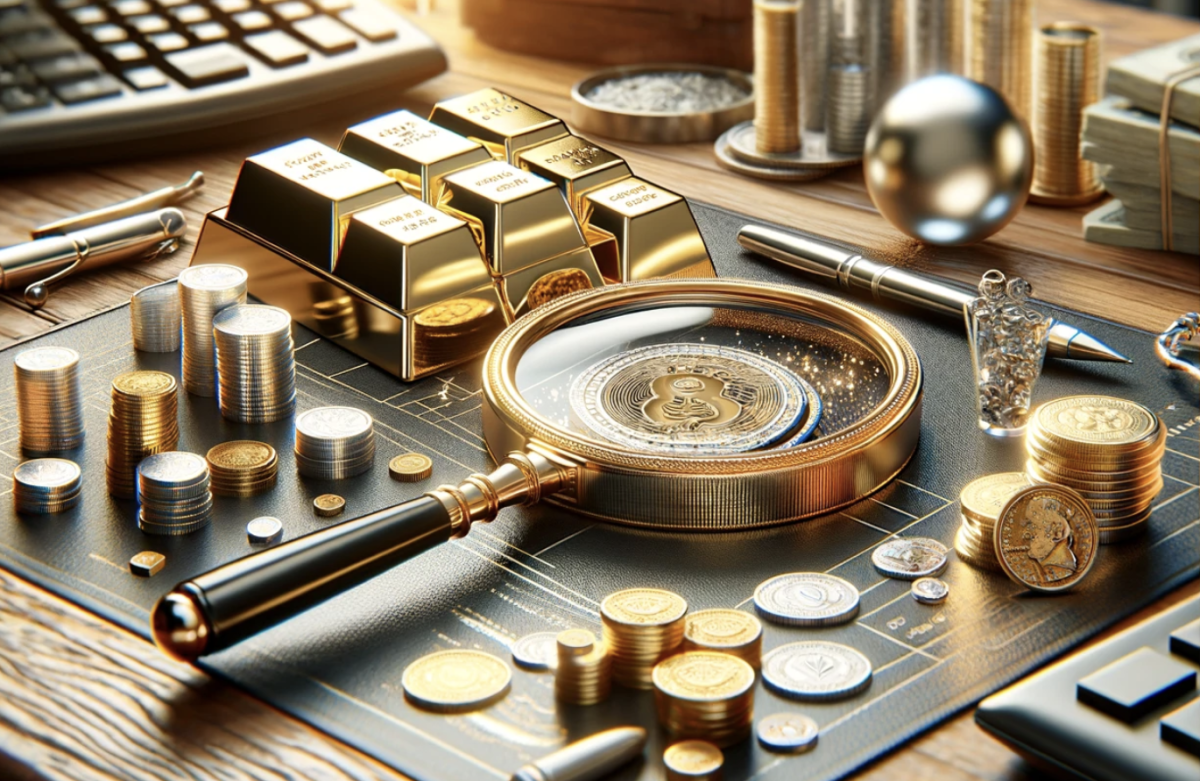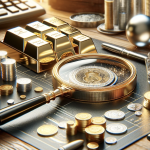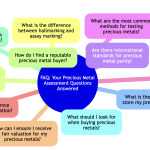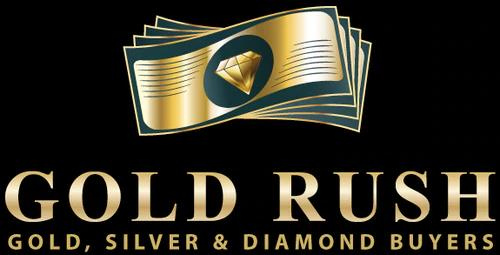Introduction - Words From an Expert Gold Buyer
It pays to know about precious metals assessments - literally.
If you buy or sell anything made of precious metals like gold, silver, platinum, or palladium, you may have some concerns about the assessment process.
These items can be very valuable - you want to make sure you know what you have. You also want to be able to identify legitimate methods by professional assessors, so you aren't taken advantage of.
The best gold buyer Westminster has to offer, Gold Rush, is a dedicated buyer and seller of anything made of precious metals and diamonds. We use industry-leading technology and assessment methods to deliver the best possible service to the communities we serve.
Use this article to gain some base knowledge of the world of precious metals assessments.
Key Takeaways
- Accurate Testing ensures precise results and fair valuation.
- Different Testing Methods identify each metal's purity.
- Certification Marks reveal authenticity and quality.
- Valuation Factors include market prices and intrinsic metal value.
- Professional Appraisers help establish accurate valuations.
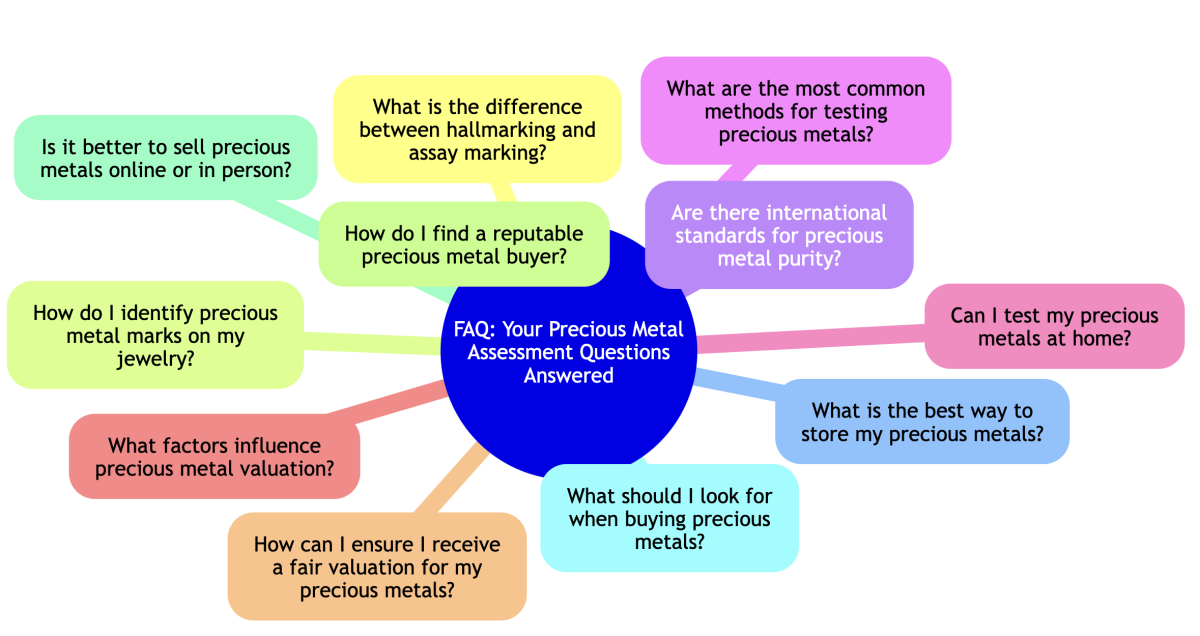
Questions About Precious Metal Standards and Regulations
1. What is the difference between hallmarking and assay marking?
Hallmarking refers to stamping precious metal items with marks indicating their purity and origin. Assay marking is a process that confirms these purity levels through independent testing.
2. How do I identify precious metal marks on my jewelry?
Look for stamped marks that indicate purity, origin, and manufacturer. Common marks include "18K" for 18-karat gold, "925" for sterling silver, and "PT950" for platinum. For older pieces, consult a reputable assessor.
3. Are there international standards for precious metal purity?
Yes, different countries have established purity standards for precious metals. The London Bullion Market Association (LBMA) sets international standards, and hallmarking centers verify purity levels according to their regulations.
Questions About Precious Metal Testing and Valuation
4. What are the most common methods for testing precious metals?
- Fire Assay Testing: Highly accurate but time-consuming. Ideal for gold and silver.
- X-Ray Fluorescence (XRF) Analysis: Quick, non-destructive analysis of multiple metals.
- Inductively Coupled Plasma (ICP) Spectroscopy: Precise; detects trace elements.
- Ultrasonic Testing: Checks density and structure. Useful for detecting counterfeits.
- Acid Testing: Quick and cost-effective, but less accurate than other methods.
5. Can I test my precious metals at home?
Home testing kits can give a rough indication of purity, but they lack the accuracy of professional testing. For precise results, consult a certified assessor who uses methods like XRF analysis or fire assay.
6. What factors influence precious metal valuation?
- Metal Purity: Higher purity means higher value.
- Market Prices: Global trends significantly influence prices.
- Weight: Heavier items generally have a higher value.
- Rarity: Unique metals or designs often command a premium.
- Condition: Well-preserved pieces fetch better prices.
7. How can I ensure I receive a fair valuation for my precious metals?
Select a reputable assessor who follows standardized testing protocols and provides detailed reports. Transparency in pricing and positive customer reviews are indicators of fair practices. Compare offers from multiple buyers to ensure you're getting the best value.
Questions About Buying and Selling Precious Metals
8. How do I find a reputable precious metal buyer?
- Credentials and Licenses: Verify certifications from industry bodies.
- Industry Experience: Choose buyers with extensive experience.
- Testing Methods Used: Ensure reliable and accurate testing methods.
- Customer Reviews: Positive feedback indicates credibility.
- Transparent Pricing: Insist on clear pricing and detailed reports.
9. Is it better to sell precious metals online or in person?
Selling online can offer higher prices due to wider market access. One downfall to selling online is the possibility of loss and the time used to send the package, but in-person sales provide immediate cash and allow for face-to-face negotiation. Make sure online buyers are reputable and offer insured shipping.
10. What should I look for when buying precious metals?
- Purity Marks: Look for hallmarking or assay marks indicating purity.
- Weight and Condition: Verify the weight and inspect for damage.
- Market Prices: Check current market prices before purchasing.
- Trusted Seller: Choose reputable dealers with transparent policies.
- Certification: Request a certificate of authenticity for valuable pieces.
11. What is the best way to store my precious metals?
Storing precious metals securely is crucial. Consider a bank safety deposit box or a home safe with high-security features. Ensure items are insured against theft or loss, and check with your insurance provider for coverage options.
Final Thoughts - Honest, Transparent Precious Metal Assessments
This article has outlined some of the most common questions about the precious metal assessment and sale process. Using this information, you are now better prepared to make smooth and agreeable transactions in the future.
Gold Rush, with our experienced professionals and customer-focused approach, offers comprehensive assessment services in Colorado and Texas. Our transparent practices ensure fair pricing and exceptional service, whether you're buying or selling precious metals and diamonds.
